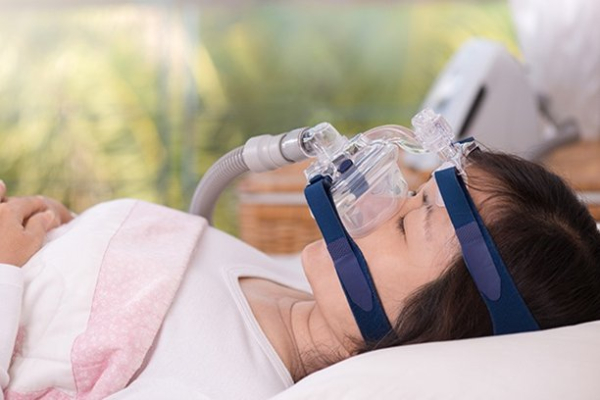
People aged 50 and older with sleep apnea have 21% higher odds of hospitalization compared to those without the breathing disorder, researchers report. Photo courtesy of Penn Medicine
Folks with sleep apnea are more likely to require hospitalization for an ailment, a new study shows.
People aged 50 and older with sleep apnea have 21% higher odds of hospitalization compared to those without the breathing disorder, researchers report. Advertisement
“The findings hold true even after taking into account other factors that may contribute to an increased risk of health service utilization” like excess weight, poor health and depression, said lead researcher Christopher Kaufmann, an assistant professor of health outcomes and biomedical informatics at the University of Florida College of Medicine.
Sleep apnea occurs when the upper airway collapses during sleep, cutting off breathing and causing a person to fitfully wake up throughout the night.
Untreated sleep apnea has been linked to health problems like high blood pressure, heart disease, heart rhythm problems, stroke and Type 2 diabetes, researchers said.
For this study, they analyzed data from more than 20,000 participants in the Health and Retirement Study, an ongoing project tracking the health problems of aging.
Participants were surveyed about their sleep disorders, including sleep apnea, in 2016. About 12% said they had been diagnosed with sleep apnea.
Two years later, the participants were asked about hospitalizations and use of health services. Advertisement
The results, which were published recently in the journal Sleep and presented Monday at the annual meeting of the Associated Professional Sleep Societies in Houston, show that treating sleep apnea can keep older adults out of the hospital, Kaufmann said. Still, such research is considered preliminary until published in a peer-reviewed journal.
“Addressing sleep apnea can not only improve individual health outcomes but also alleviate the strain on healthcare resources, leading to more efficient and effective healthcare delivery,” Kaufmann said in a meeting news release.
Johns Hopkins Medicine has more about sleep apnea.
